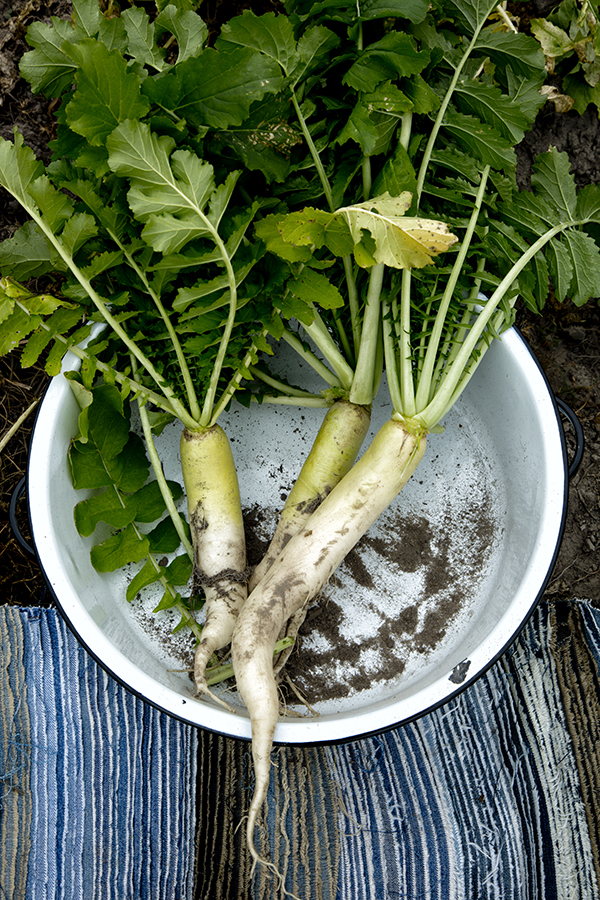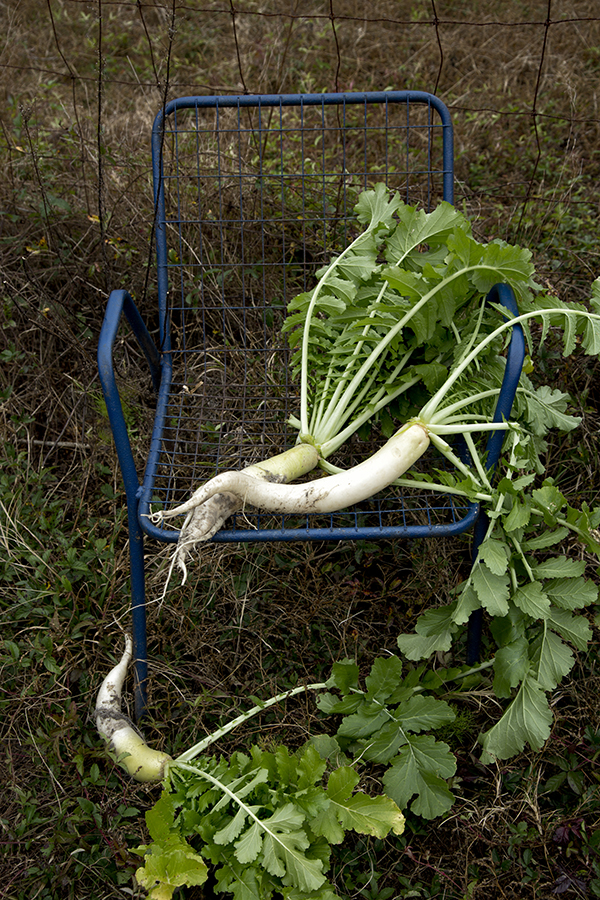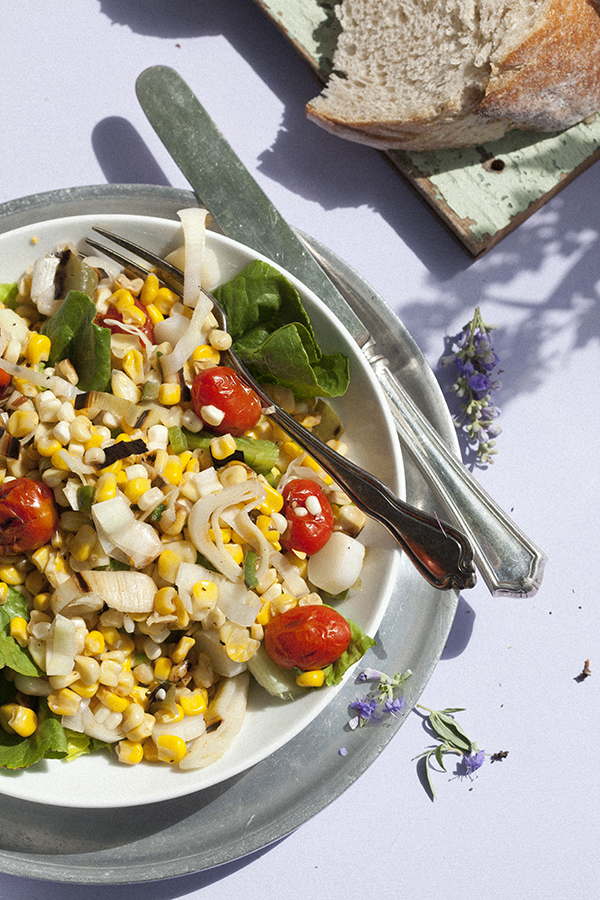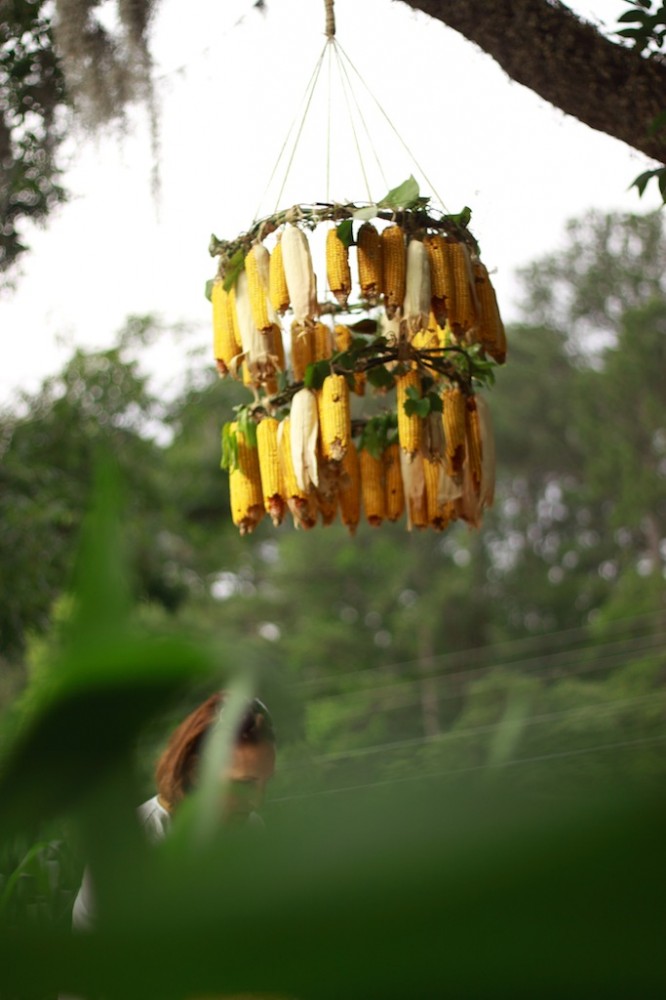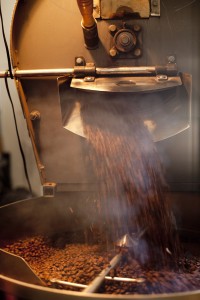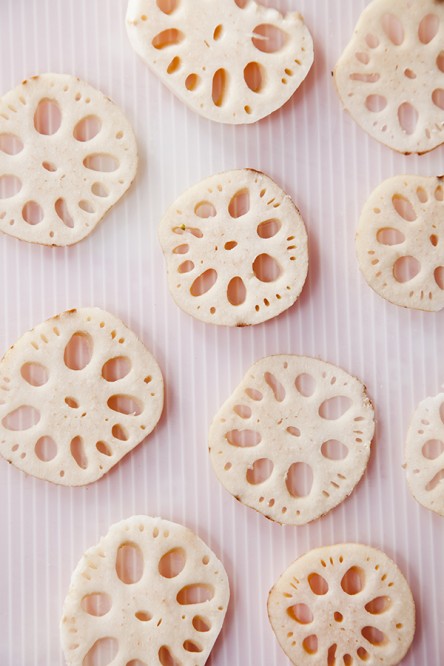Words by Andrea Goto
Photography by Chia Chong
Styling by Libbie Summers
“Howzit? Ono?”
Ray’s uncle gestured toward me with his chopsticks and smiled mischievously, expecting me to gag on the unagi.
“Excuse me?” I ask.
My husband’s relatives broke into laugher. As a blonde, 5’10” haole from the mainland who didn’t speak Hawaiian Pidgin, I was the best dinner show in town.
“He’s asking if it’s good,” Ray translated—amused. I remember thinking it was a little early in our relationship for condescension.
Language of Love
We had gathered at my husband’s grandfather’s home in a residential community on Oahu along with aunts, uncles and cousins who weren’t able to make it to our wedding a couple of weeks prior. We feasted on a sumotori-size platter of the freshest sushi I’ll ever have the privilege of enjoying, with a heavy dose of mockery on the side.
Over the course of our honeymoon, I discovered how beautifully metaphoric Pidgin English could be. Hanabata, which translates literally to “nose butter,” immediately became a part of my lexicon, rounding out the litany of snot references used for specific instances (“number elevens,” “bat in the cave”…). As with any non-native speaker, I made some misapplications along the way. Pau (pronounced “pow”) means you’re stuffed from eating; however, one does not throw down a fork and pronounce “Pow!” as one would “Bam!” Bat-fight words, apparently, are not cross-cultural.
Don’t Let the Pidgin Write the Dictionary
Years later, I was on the golf course with my husband and his father, when I commented on my father-in-law’s ripped calves, made more impressive by the fact that the only calf-raise he does is when he reaches for the coffee on the second shelf.
“He has daikon legs,” Ray says, as if offering an explanation.
Apparently, “daikon legs” refers to the meaty portion of one’s lower leg. In more polite circles, the Japanese word translates to “large root,” and refers to giant, white, carrot-like radishes. My father-in-law’s calves are neither white nor carrot-like, but he is Japanese. Ray tells me that it’s a rather disparaging term, like “cankles,” and you don’t want to talkstink. But this only confuses the matter further. I’m not offended by someone describing my legs as carrot-like—and, yes, I’m still waiting for such a comparison to be made.
To solve this wordsmithery mystery, I Google images of “daikon” and try match my father-in-law’s lower leg with what I find. Not awkward at all.
Not so fruitful either.
I find only one variety of daikon that looks more like a featherless Angry Bird than Dad’s calf. Das junk. I proclaim a misnomer.
Libbie’s Styling Props: Custom denim table runner handmade by Eric Hildebrand, Enamel washing dish from Habersham Antiques Market, Shot on location at Urbanna Farm

